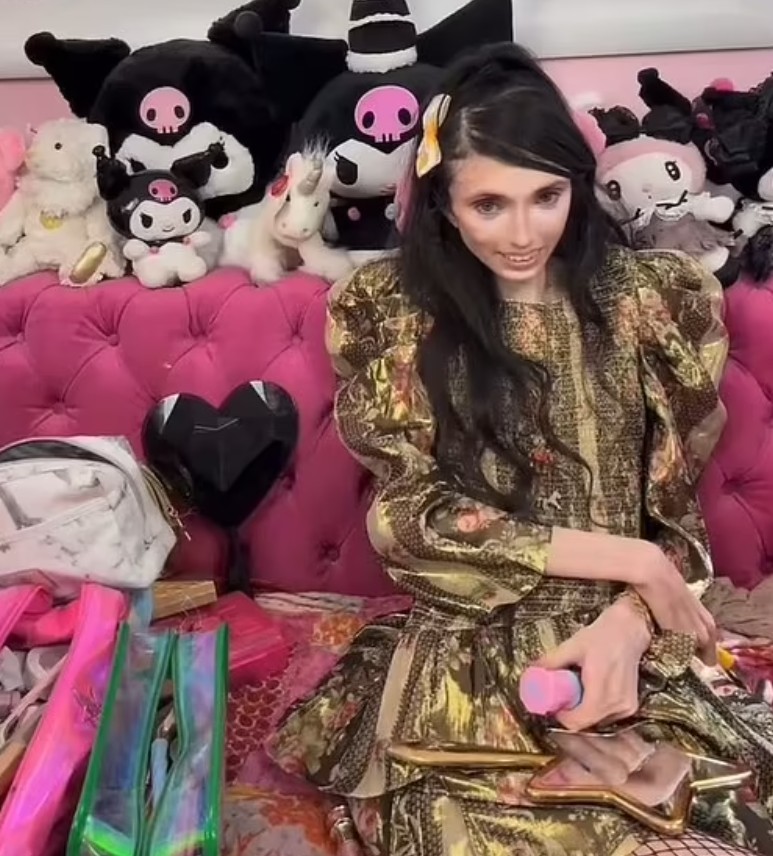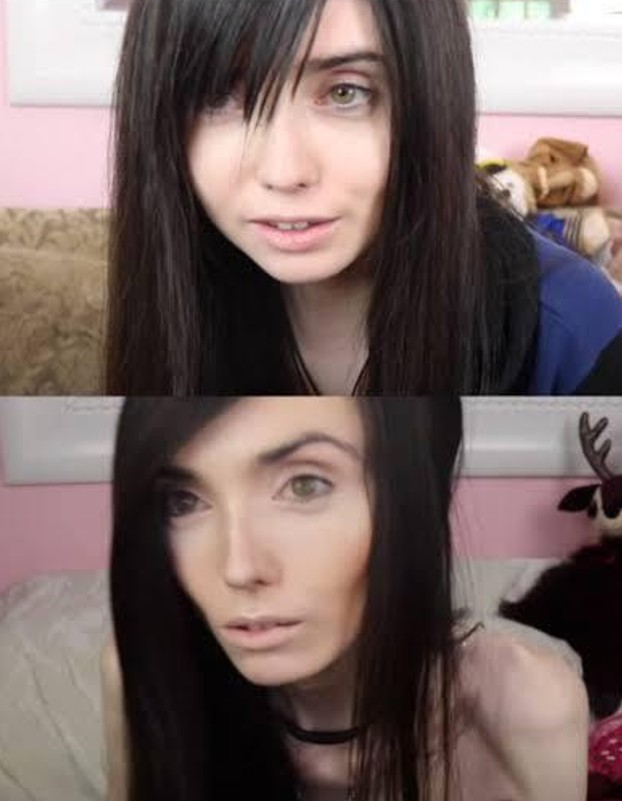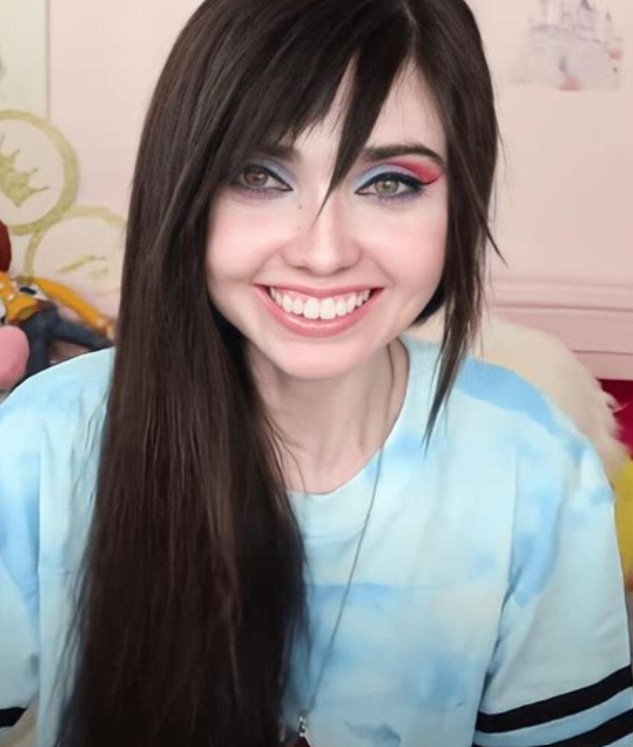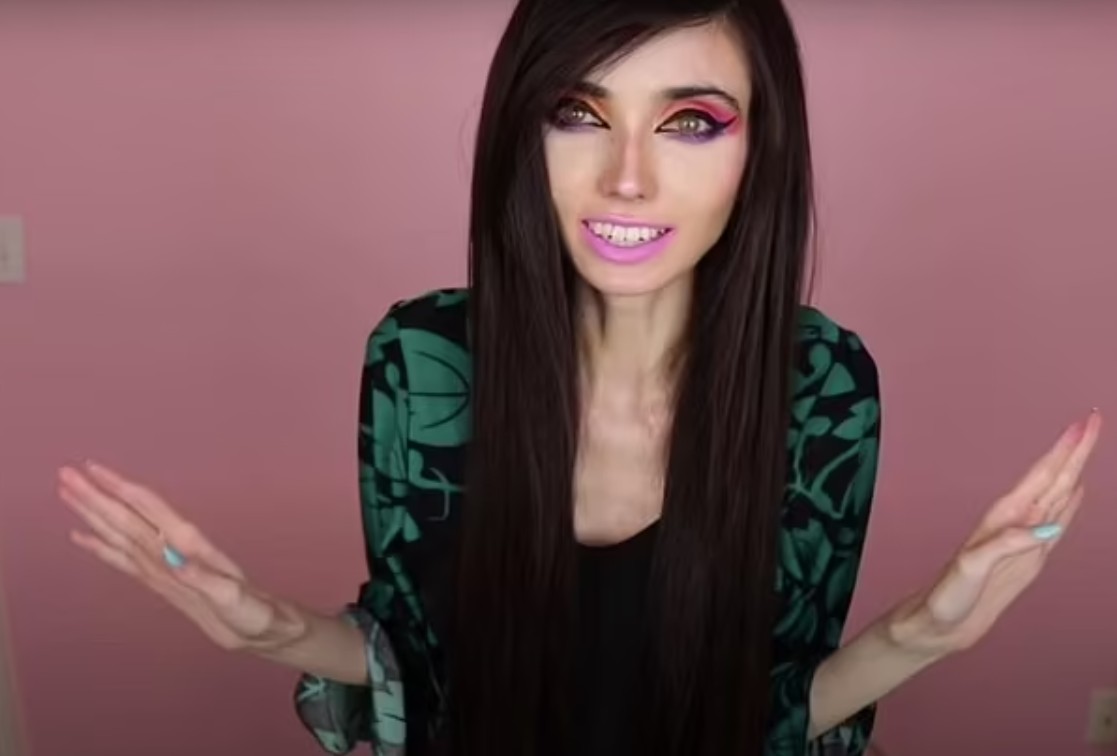Eugenia Cooney Collapse Video Sparks Outcry
Eugenia Cooney, a social media personality known for her unique fashion sense and make-up tutorials, has once again become the center of public concern after a deeply unsettling incident during a TikTok live stream. The 30-year-old influencer, who has long been followed for her beauty content, appeared to collapse during the broadcast, reigniting ongoing fears about her health and highlighting the broader issues of eating disorders and social media responsibility.
Content
- 1 A Shocking Live Stream Moment and Video
- 2 Reactions From Fans and Influencers
- 3 Eugenia’s History and Ongoing Struggles
- 4 Fans’ Emotional Responses and Darker Fears
- 5 Medical Perspective: Signs of Severe Health Risks
- 6 Social Media’s Role in Shaping Body Image
- 7 Research Confirms Social Media’s Harm
- 8 Ethical Concerns for Influencers and Platforms
- 9 A Plea for Compassion
A Shocking Live Stream Moment and Video
What began as a routine make-up tutorial quickly took a worrying turn. Eugenia, who appeared slightly disoriented from the outset, initially reassured her viewers by saying she was “okay.” However, moments later, she slumped back on her sofa, visibly struggling and seemingly gagging. Her expression became blank and frightened, prompting alarm among thousands watching the stream in real time.
Shortly after, she admitted she “wasn’t feeling that great” and attributed the episode to “letting my stress get to me.” Without further explanation, she abruptly ended the broadcast. The footage of the incident spread rapidly across platforms, drawing millions of views and thousands of comments from deeply worried fans and critics alike.
Reactions From Fans and Influencers
The immediate aftermath saw an outpouring of concern, with fans voicing fears for Eugenia’s safety and wellbeing. Comments ranged from expressions of heartbreak to dire predictions. One user wrote, “She genuinely looked so scared before she ended that live.” Another said, “That stare she was doing when she sat back was so scary and upsetting. I think this is the worst I’ve seen her.”
Some took their fears even further, speculating that Eugenia might not have long left if she did not receive immediate help. “We all know exactly what is going on and it’s horrifying,” said one especially concerned commenter.
Amid this storm, Eugenia’s close friend and fellow influencer Jeffree Star stepped in. With nearly 8 million followers on TikTok, Star used his platform to defend Eugenia from what he described as invasive and insensitive scrutiny. “People love tearing others down even when they’re at their worst,” he said, visibly emotional. “Clearly she’s not okay and I love her. I will be here for her and I am here for her.”
He continued, “You don’t know what’s happening behind the scenes… When I said she was okay yesterday, it was so you would shut up.”
Eugenia’s History and Ongoing Struggles
Eugenia has long been a subject of both admiration and concern. With over 2.7 million followers on TikTok, 720,000 on Instagram, and more than 2 million YouTube subscribers, she has cultivated a massive audience since her social media debut in 2013. But with her rise to fame came growing scrutiny of her physical appearance, particularly her extremely thin frame.
Although she rarely addresses her body or diet publicly, Eugenia has acknowledged suffering from an eating disorder. In 2019, following an intervention reportedly led by close friends, she entered treatment. That same year, she spoke openly in a documentary-style interview with YouTuber Shane Dawson, revealing her struggles with an eating disorder. The video garnered over 30 million views and drew widespread sympathy.
In a separate interview with psychotherapist and YouTuber Kati Morton, Eugenia admitted she was no longer in “super-constant therapy,” though she stated she still had access to a therapist when needed. However, she has not provided any updates on her treatment or recovery since then.
Fans’ Emotional Responses and Darker Fears
The live stream incident struck a nerve with fans, many of whom have watched Eugenia’s content for years. The emotional toll of witnessing her in such a vulnerable state was palpable. Some viewers speculated that the video posted shortly after the incident was pre-recorded, potentially filmed over a year ago adding to fears that Eugenia may be withdrawing from real-time interaction due to deteriorating health.
The sadness and fear expressed in the comments reflect not only concern for Eugenia as an individual but also collective frustration with the seeming lack of intervention or visible change. Fans are trapped in a painful cycle of worry, support, and helplessness.
Medical Perspective: Signs of Severe Health Risks
Health professionals have long warned that the symptoms exhibited by Eugenia such as extreme fatigue, disorientation, and visible emaciation can be indicative of serious medical conditions. These symptoms are often linked to malnutrition resulting from long-term food restriction.
In addition to low mood and energy levels, chronic malnutrition can lead to muscle loss, increased risk of falls, mobility issues, and a weakened immune system. Severe depletion of subcutaneous fat beneath the skin also increases the risk of pressure sores and delayed healing of wounds. These physical effects, when left untreated, can have life-threatening consequences.
Social Media’s Role in Shaping Body Image
The concerns surrounding Eugenia Cooney highlight a much larger and systemic issue: the influence of social media on body image and the rise in eating disorders, particularly among young people.
In the UK alone, over 1.25 million people suffer from eating disorders, with children and adolescents representing a growing portion of those affected. Damning statistics released in 2023 showed that over 10,600 children in England were waiting to begin treatment for eating disorders double the number from just six years earlier.
Experts have frequently warned that platforms like TikTok and Instagram, which promote highly curated and often unrealistic depictions of beauty and health, can significantly impact the mental wellbeing of impressionable users.
Research Confirms Social Media’s Harm
A study conducted by Charles Sturt University in Australia found that watching as little as 10 minutes of TikTok videos could significantly decrease body image satisfaction in young women. Researchers exposed participants aged 18 to 28 to either nature/cooking content or compilations of “pro-anorexia” videos content that glorifies disordered eating.
Both groups reported a drop in satisfaction with their body image afterward, but those who viewed the pro-anorexia content experienced the most significant decline. The findings, published in Plos One, highlighted the dangerous psychological effects that even short-term exposure to harmful content can have.
In a separate study, TikTok was criticized for failing to act swiftly on harmful content. Within minutes of users showing interest in mental health or eating disorder topics, the app’s algorithm pushed videos related to self-harm and disordered eating to their feed. This has raised alarm bells about the platform’s responsibility to safeguard vulnerable users.
Ethical Concerns for Influencers and Platforms
Eugenia Cooney’s situation presents a troubling ethical question: What is the responsibility of influencers when their content visibly reflects personal harm? And equally important what role should platforms like TikTok, Instagram, and YouTube play in protecting both their creators and audiences?
While social media offers visibility and support, it also exposes individuals to relentless public scrutiny and the pressure to maintain a persona. For someone like Eugenia, who may still be struggling, this spotlight can be a double-edged sword.
Calls have been made in the past for social media companies to temporarily suspend accounts that may pose health risks to the individual or their audience. Petitions urging platforms to intervene in Eugenia’s case have circulated, sparking intense debate between those advocating for freedom of expression and those prioritizing health and safety.
A Plea for Compassion
As Eugenia remains absent from live appearances, her silence has only deepened the concerns. Yet amid the speculation and judgment, what remains most crucial is compassion. Jeffree Star’s emotional plea reminds us that viewers often don’t see the full picture. Behind curated content and public personas are human beings who may be suffering in silence.
Public concern is valid, but it must be accompanied by kindness. Mental illness and eating disorders are complex and deeply personal struggles. While it’s natural to worry about public figures we feel connected to, real support comes from empathy, not harassment.
The frightening moment during Eugenia Cooney’s live stream has served as a wake-up call not just for her fanbase, but for society at large. It underscores the urgent need for better mental health support, stronger content regulation on social media platforms, and greater awareness of how online content shapes real-world behaviors and beliefs.
As the world watches and worries, let us remember that no number of views, likes, or followers can outweigh the importance of a person’s health and dignity. Eugenia’s story is still being written, and perhaps, with enough compassion and accountability, it can still take a turn for the better.
Daily Hot News -Valeria Marquez Shooting Video at Zapopan and Viral Reddit, Twitter, Instagram
Tyre Nichols Video and Detailed Breakdown
Christina Solometo Video and Road Rage or Public Outrage
Woman Poops on Car in Road Rage Video and Pennsylvania
Steve Stephens and Robert Godwin Video: National Manhunt
Shuaib Aslam Full Video and Tragic Livestream That Shocked
Delco Pooper Video and Laughter After Bizarre Road Rage




